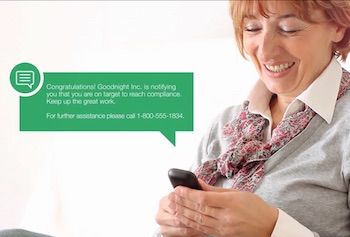 There was a significant reduction in the time required to coach patients who used a telehealth program on continuous positive airway pressure (CPAP) therapy than those that received the standard of care, according to a study published in Sleep and Breathing.
There was a significant reduction in the time required to coach patients who used a telehealth program on continuous positive airway pressure (CPAP) therapy than those that received the standard of care, according to a study published in Sleep and Breathing.
The study, conducted by Sleep Data Holdings between March and August of 2013, used medical device company ResMed’s U-Sleep patient management offering.
“[Home medial equipment (HMEs) providers] are under pressure to keep patients on therapy and improve compliance, while simultaneously reducing costs,” ResMed President of Healthcare Informatics Global Business Unit Raj Sodhi said in a statement. “These study findings show that automated coaching can help significantly. With more than 1.3 million connected devices, ResMed is committed to easing this burden on our HME customers as we work together to keep our patients healthy.”
Researchers split the 122 study participants, who were recently diagnosed with obstructive sleep apnea, into two groups.
In the telehealth group that used ResMed’s U-Sleep offering, 58 patients were sent automated tests and emails that were triggered by one of five situations that suggested non-compliance. One such scenario was “No CPAP data for two consecutive days or CPAP usage of less than four hours for three consecutive nights.” The 64 patients in the standard of care group received scheduled telephone calls on days one, seven, 14, and 30.
The researchers found there was a 59 percent reduction in labor in the intervention group that used U-Sleep and no statistically significant differences in adherence, daily CPAP usage, and CPAP efficacy.



















